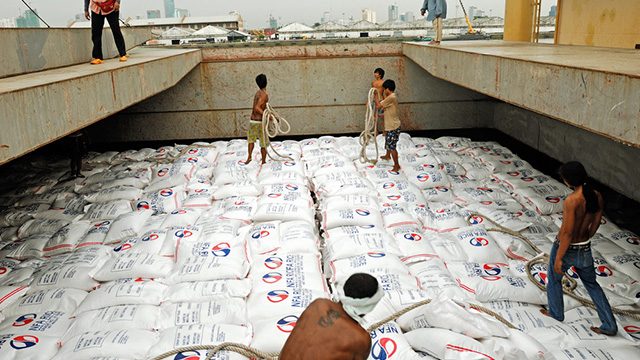SUMMARY
This is AI generated summarization, which may have errors. For context, always refer to the full article.

MANILA, Philippines – Upon orders from President Benigno Aquino III, Justice Secretary Leila de Lima has directed the National Bureau of Investigation (NBI) to conduct a fact-finding probe into reports of fake rice being sold in stores.
The NBI probe will “determine whether such fake rice has reached the public and, if so, what are the affected areas,” De Lima told reporters. Investigators will also identify the source and file appropriate charges against them, she added.
The National Food Authority (NFA) in Davao City earlier informed the head office of a report it received on June 26 regarding the alleged sale of fake rice in the city.
Davao City resident Carmencita Grinio reported to the NFA that she bought rice from Cuidad Esperanza canteen in Cabantian, Davao City, which reportedly had the appearance of styropor, a synthetic packaging material.
NFA’s initial findings showed that the samples were found to “have 90% likelihood to contain dibutyl phthalate (DBP), a plasticizer used for manufacture of cosmetics and will be subject to further confirmatory testing.”
Senator Cynthia Villar held a hearing on the issue in Davao City on Monday, July 13.
She said the police Criminal and Investigation Detection Group (CIDG), which is also investigating the case, needs to trace the source.
In its report during the hearing, CIDG said: “As of this time, there are no traces of evidence to conclude the presence of fake rice in Davao City, based on the investigation and laboratory results of collected raw samples from rice retailers, warehouses, and mills where the alleged fake rice came from.”
The CIDG report also recommended that “the isolated case of fake rice in Davao City shall be subjected to continuous investigation and monitoring.”
Food safety law
Villar said that the responsibility of tracing the source ultimately lies with the NFA.
She took note of NFA’s initial findings that the presence of chemicals in the rice samples could not be simply attributed to mishandling during delivery.
Villar added that a food security law was passed in 2013 but this lacks implementing rules and regulations.
“Maybe this happened as a wake-up call for the implementation of the food safety law. Sometimes things happen that make you question why certain laws are not being implemented,” Villar said. – Rappler.com
Add a comment
How does this make you feel?
There are no comments yet. Add your comment to start the conversation.